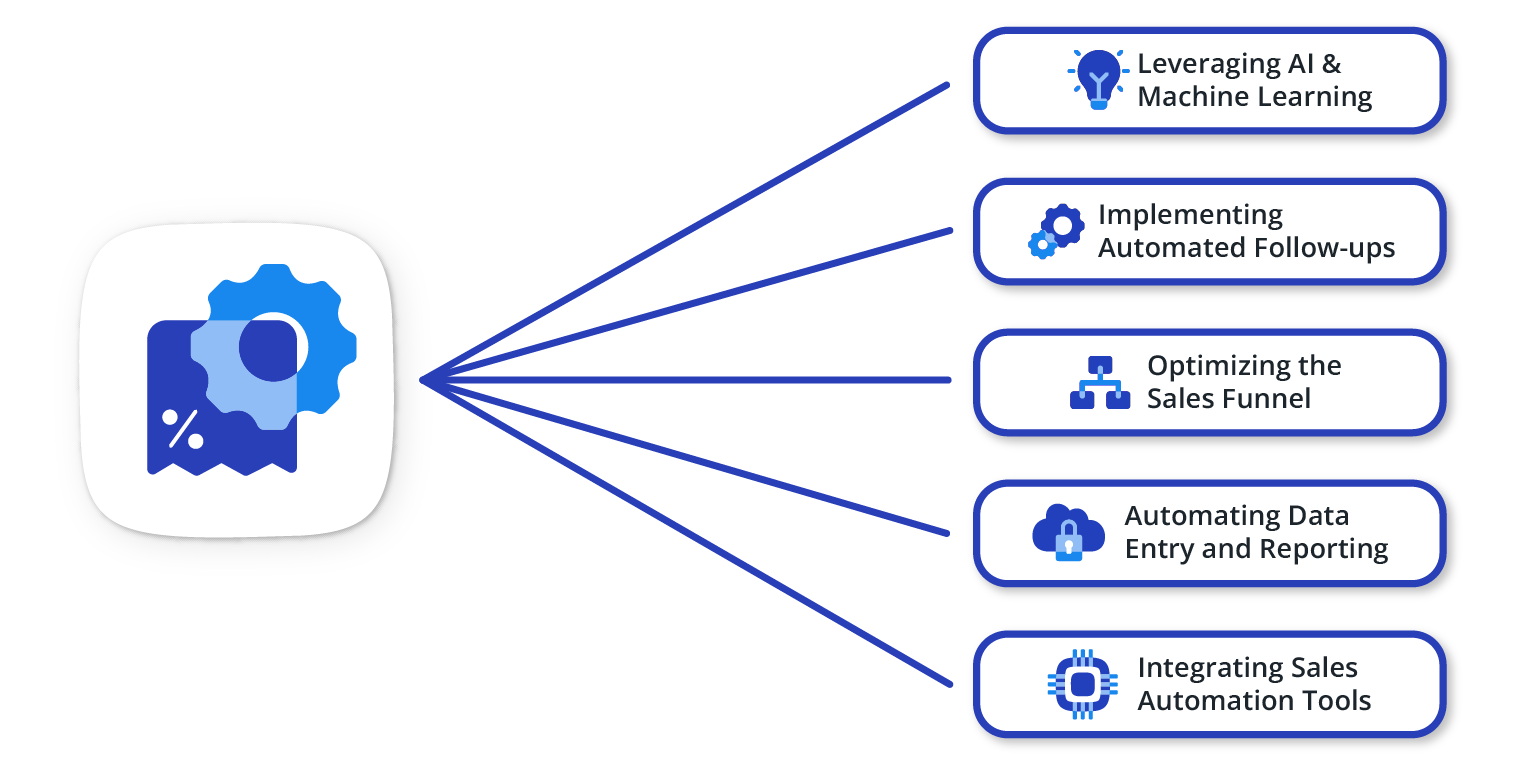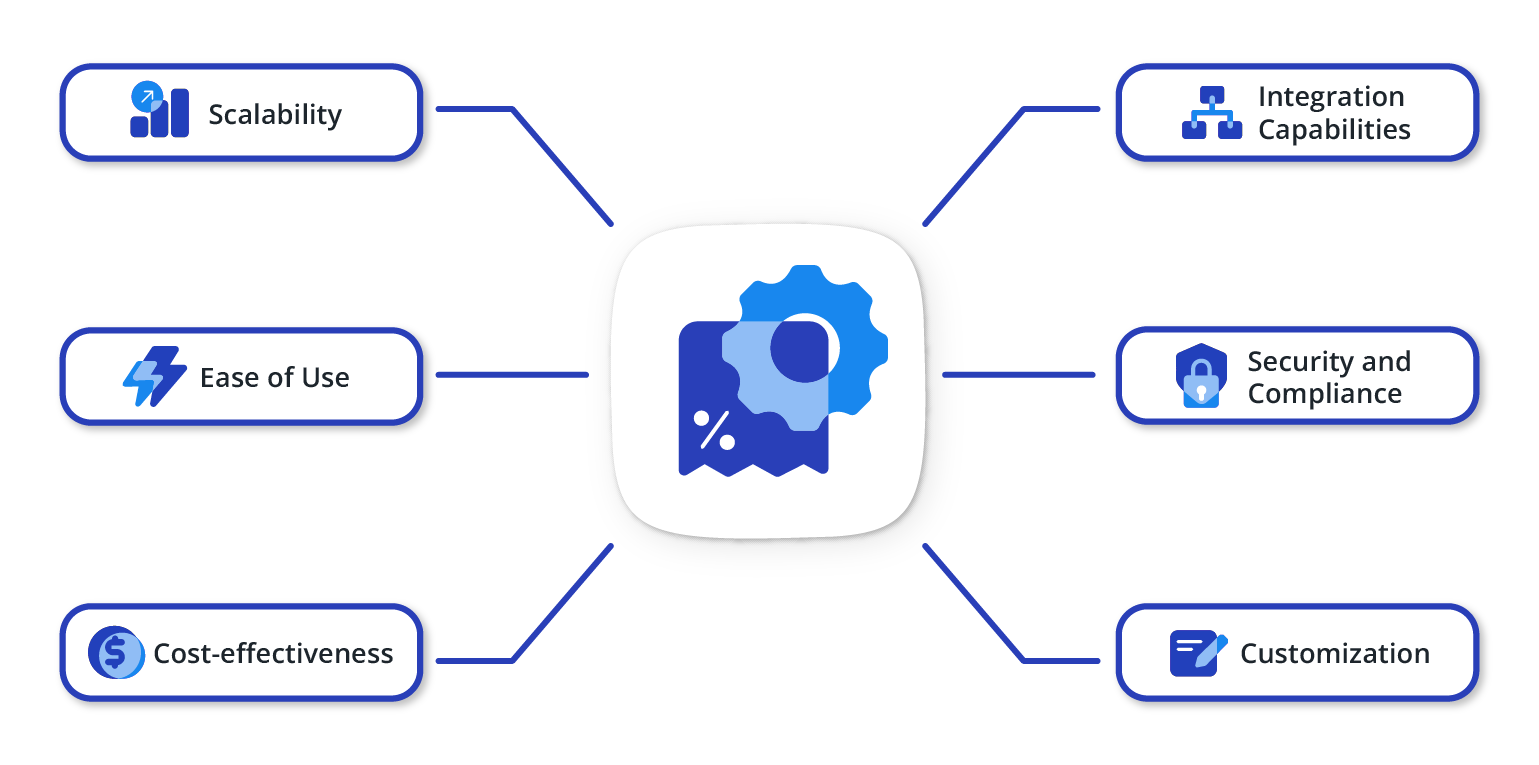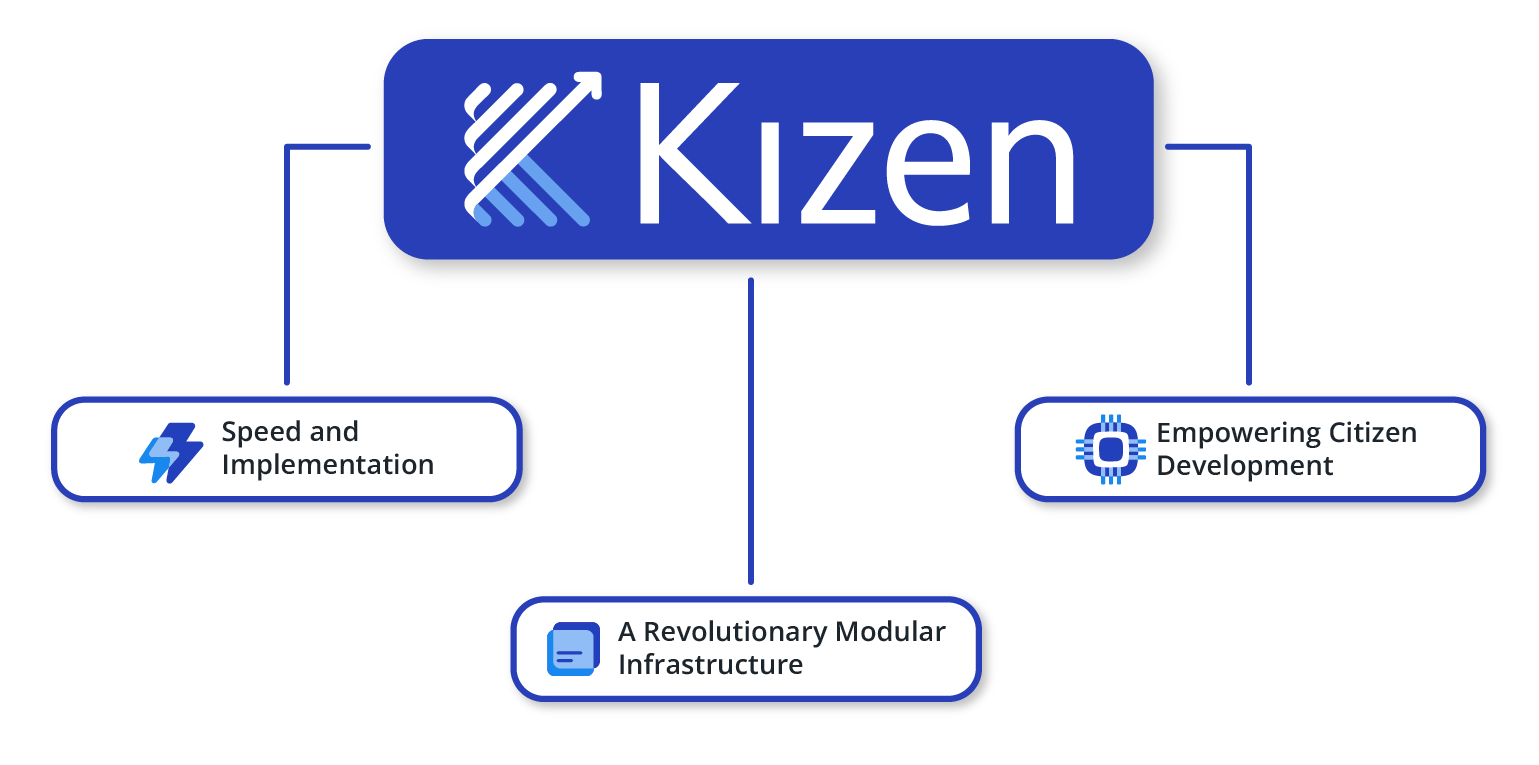In the bustling world of sales, missed follow-ups, disorganized data, and inefficient manual processes are the shadows that often loom large, hindering potential growth. These aren’t mere roadblocks but significant profit-eaters for any enterprise.
But imagine a world where these challenges aren’t just managed but completely transformed. This is the promise of sales automation.
Dive into this article to understand the power of sales automation, its crucial role in modern businesses, and how embracing it can redefine efficiency, boost productivity, and skyrocket profits.
Understanding the Basics of Sales Automation
Sales automation refers to the use of technology to streamline, optimize, and automate repetitive and time-consuming sales tasks. It includes tools and strategies designed to improve efficiency and accuracy in the sales process, leading to increased revenue and better customer relationships.
But to appreciate the power of automation, you must first understand the dilemma of manual sales operations.
Imagine an old sales floor: the constant rattle of rotary phones, sales reps poring over thick ledgers and jotting down leads with pens that sometimes ran out of ink, and the sheer manual grit it took to chase every potential lead. It was an era where intuition was a salesperson’s best tool, and spreadsheets, though cumbersome, were their technological zenith.
But as with all things in business, stagnation often leads to irrelevance. As technology advanced, leaders saw the potential to transform sales from being based on gut feeling to being rooted in data and efficiency. The digital revolution wasn’t just about ease; it was about harnessing precision, personalization, and predictive analysis to supercharge sales efforts.
Now fast-forward to the present day: sales automation tools have become indispensable. The modern sales environment thrives on a vibrant digital platform, where every lead is tracked, every interaction is recorded, and predictive algorithms often anticipate clients’ needs before they even know them.
Automation has not only sped up the sales process but also added layers of intelligence and strategy previously unimaginable.
Why Sales Automation Is Required for Enterprises to Stay Competitive
Staying competitive isn’t just having a unique product or an aggressive marketing strategy. It’s using the most advanced tools to make your operations smoother, smarter, and more efficient.
Enter sales automation, a crucial tool for modern enterprises aiming to stand out in an increasingly saturated market.
Think about the traditional sales process. Manual sales operations, while grounded in tried-and-true methods, are often riddled with inefficiencies. Sales representatives would spend huge amounts of time sifting through vast lists of potential leads, making cold calls based on gut feelings, and manually tracking interactions in massive logs or spreadsheets.
This process was time-consuming and left ample room for human error. Data entry mistakes, forgotten follow-ups, or overlooked customer preferences could easily translate into missed opportunities, which could harm profits.
The challenges posed by manual operations are further magnified when we consider the scale at which modern enterprises operate. With global markets and clients across different time zones, managing sales operations without automation is like navigating a ship without a compass in stormy seas.
Sales automation addresses these challenges head-on. By automating repetitive tasks, businesses can ensure their sales reps spend more time doing what they do best: building relationships and closing deals.
Automated systems can meticulously track customer interactions, ensuring no lead is overlooked and every potential client is engaged at the right time with the right message. The result? Improved sales efficiency that directly impacts profit growth.
But the significance of sales automation goes beyond mere efficiency. Industry leaders aren’t just looking to streamline operations; they aim to harness the full power of technological advancements.
Sales automation tools, armed with AI and machine learning capabilities, can analyze vast amounts of data to provide insights previously unimaginable. They can predict market trends, identify potential high-value clients, and suggest personalized strategies to engage each lead.
Such capabilities mean businesses aren’t just reacting to the market but proactively shaping their sales strategies based on predictive insights.
Furthermore, the modern enterprise operates in an interconnected digital ecosystem. Sales aren’t confined to calls or face-to-face meetings; they span emails, social media, webinars, and more. Sales automation tools integrate seamlessly into this ecosystem, ensuring a unified and consistent approach across all platforms.
In an age where every industry leader seeks to maximize advantages through cutting-edge software, sales automation isn’t just an optional tool—it’s the cornerstone of a successful, competitive enterprise.
Using Sales Automation to Lead Your Industry
Using advanced tools is the key to keeping your competitive edge in today’s market. Sales automation stands out as one of the most effective tools, amplifying your sales efforts.
Leveraging AI & Machine Learning
In sales, AI and machine learning have transitioned from abstract concepts to practical, indispensable tools.
Imagine the ability to look into the future of your sales trajectory, having predictive insights right at your fingertips. This is what AI offers when applied to sales forecasting. By analyzing massive historical data and recognizing patterns, AI systems can predict with impressive accuracy which sales initiatives will thrive and which might falter.
Beyond forecasting, customer segmentation, a once tedious task fraught with biases, has been transformed by machine learning.
By analyzing behavioral data, purchase histories, and other intricate variables, these algorithms can quickly identify customer segments. This allows businesses to tailor their sales strategies, ensuring messages resonate deeply and genuinely with each target group.
But the wonders of AI and machine learning in sales don’t stop there. As these technologies continuously ingest new data, they evolve and refine their algorithms to ensure every recommendation or prediction is better than the last.
It’s like having a sales strategist who never sleeps, constantly learning from the past, optimizing for the present, and strategizing for the future. This results in a sales operation that’s not only efficient but also incredibly adaptive, ready to meet the ever-changing demands of the market.
Implementing Automated Follow-ups
In sales, timing is everything. The right message at the right moment can be the subtle difference between a closed deal and a missed opportunity.
Follow-ups are the embodiment of this principle. They show a brand’s commitment to its potential customers. However, with countless leads, it’s easy for these crucial touchpoints to be missed or delayed.
This is where the power of sales automation becomes evident. These tools don’t just manage data; they intelligently interpret interactions, gauging the best time for re-engagement. Through automation, scheduling and sending follow-ups aren’t left to memory or intuition but are systematically organized to ensure consistency and precision.
Furthermore, automation goes beyond mere reminders. It evaluates the nature of prior interactions, guiding the content and tone of the follow-up. This means every automated touchpoint is timely and relevant, resonating with each lead’s unique needs and preferences.
As a result, sales teams reach out more consistently and in a manner that genuinely connects, facilitating conversions and nurturing enduring customer relationships. By harnessing automation for follow-ups, businesses transform fleeting interactions into lasting engagements.
Optimizing the Sales Funnel
Managing the sales process can be challenging. Each stage, from lead generation to final conversion, needs meticulous attention, or sales might drop.
Bottlenecks are the adversaries of every sales team. They can harm both the sales and the brand’s image if ignored.
Sales automation, with its advanced analytics, helps identify where leads get stuck. With real-time insights, sales teams can quickly readjust strategies or reallocate resources to streamline the flow. This proactive approach facilitated by these tools ensures that the journey from a mere lead to a loyal customer becomes more predictable and efficient.
Another standout benefit of sales automation is its ability to catch what often goes unnoticed. Sales lost due to inaction or disorder are a silent drain on resources and potential revenue.
Automation tools actively monitor each lead’s status, ensuring that none is neglected. Whether it’s a lead that hasn’t been followed up or a promising interaction that somehow lost momentum, the system raises an alert, significantly minimizing the chances of viable sales dissipating into the void.
Automating Data Entry and Reporting
The saying “time is money” couldn’t be more accurate today. Every minute wasted on mundane tasks like manual data entry is a potential opportunity lost. Manual processes, apart from being tedious, are susceptible to human errors. A single oversight or misentry can lead to miscalculations, misinterpretations, and misguided strategies.
This is where automation comes into play. By delegating these tasks to advanced systems, businesses can repurpose valuable hours toward more strategic, revenue-generating activities.
No longer does a salesperson need to painstakingly enter data point by data point; automated tools can seamlessly capture, categorize, and store information with unparalleled accuracy. This precision ensures reliability and builds trust in the data being used.
But automation does more than data entry. Its main strength is in instant reporting. Moreover, instead of taking weeks to analyze data and trends, sales teams equipped with automated tools can get comprehensive reports almost immediately. These real-time insights are invaluable, enabling businesses to quickly adjust their strategies.
By streamlining these crucial processes, automation ensures that businesses operate at peak efficiency.
Integrating Sales Automation Tools
When disparate tools communicate effectively, they eliminate data silos and streamline operations. Integration means no more fragmented insights or repetitive tasks; all data flows into one system, presenting a clear view of the sales journey.
This integration reduces manual data entry and keeps data consistent across platforms. With all tools feeding into one central hub, discrepancies are easily identified, collaboration becomes effortless, and sales opportunities increase.
Choosing the Right Sales Automation Software
The software you choose can be the backbone of your sales operations. Remember, it’s not just about fancy features; it’s finding a tool fit for your business’s specific needs and goals.
Here are several key factors to guide your choice.
Scalability
Imagine investing time and resources into a system, only to outgrow it within a year. The best sales automation platforms can scale with your business.
As your team grows, your customer base expands, and your operations become more complex, your software should be able to keep up. Look for platforms that offer modular features, allowing you to upgrade or modify functionalities as your business evolves.
Ease of Use
Even the most feature-rich software can become problematic if it’s hard to use. Your sales team should spend their time selling, not battling complicated software.
The best option should offer quick onboarding and straightforward functionalities. A clean, user-friendly interface, along with robust customer support and training, can make all the difference.
Cost-effectiveness
It’s essential to strike a balance between cost and value. While it might be tempting to choose the cheapest option, consider the long-term ROI. Will the software improve productivity? Will it help increase sales? Does it offer robust analytics that can guide your sales strategy?
Sometimes, paying a bit more upfront for a comprehensive solution can save costs in the long run by boosting revenue and efficiency.
Integration Capabilities
Your sales automation software shouldn’t operate in isolation. It should seamlessly integrate with your other tools and systems, be it CRM systems, email marketing platforms, or analytics tools. Interoperability ensures data consistency and streamlines processes across different departments.
Security and Compliance
With the increasing data privacy and protection concerns, choosing software that prioritizes security is paramount. Ensure the platform adheres to industry standards, offers regular security updates, and provides features like encryption, two-factor authentication, and regular backups.
Customization
Every business is unique, and sometimes, you might need a specific feature or functionality that isn’t part of the standard package.
Software that allows for customization, either through built-in tools or third-party plugins, can be a game-changer, letting you tailor the platform to your precise needs.
The right sales automation software is an investment in your business’s future. By carefully considering these factors, you can ensure that your chosen platform not only fits your current needs but also supports your growth and evolves with the ever-changing sales landscape.
Today’s Most Popular Sales Automation Tools
As sales automation becomes the standard, several tools have emerged, each with specific features for various business needs. Knowing the key features and strengths of each can help you pick the best fit for your organization. Let’s explore some.
Hootsuite
Hootsuite is a social media management tool that consolidates various social media platforms under one dashboard, allowing businesses to monitor and engage across different social channels. It offers features such as scheduling, analytics, and real-time engagement. Companies seeking to integrate social media into their operations might consider Hootsuite.
Hubspot
Hubspot is an all-in-one platform for inbound marketing, sales, and CRM. It addresses various stages of the customer journey and provides tools to attract, engage, and delight them, from initial content engagement to customer conversion.
In addition to sales automation, Hubspot offers detailed analytics, content management, and SEO tools. It also has an integrated CRM to track interactions, ensuring sales teams have all the information they need.
Keap
Formerly known as Infusionsoft, Keap focuses on client management and email marketing. Designed especially for small businesses, it provides a platform to manage contacts, streamline customer communications, and automate sales processes.
Among its features is email marketing automation, which helps businesses segment their audience and send targeted messages. It features a user-friendly interface suitable for those new to sales automation.
How Kizen Compares With Others
While many sales automation tools offer impressive features, Kizen goes several steps further, setting a new industry benchmark. Here’s what truly sets Kizen apart from the pack.
At the heart of Kizen’s prowess is its capability to build, connect, and deploy a custom enterprise neural network. It isn’t just any neural network; it’s tailor-made for businesses, designed to integrate 100% of their critical technology and data.
What does this mean for businesses? Unprecedented levels of automation that sweep across every aspect of operations, ensuring every department works in harmony.
Unlike traditional legacy systems that often operate in silos, Kizen’s approach ensures holistic collaboration across teams. Basically, it’s not just about streamlining processes but about reaping the highest ROI possible from every technology investment a business makes.
With Kizen, enterprises aren’t just keeping up with the competition; they’re staying miles ahead.
Outcomes from Kizen’s Approach to Sales Automation vs. Legacy Competitors
Conventional tools can hold businesses back with outdated methods. Kizen’s modern approach sets it apart, leading to significant results in today’s competitive market.
Speed and Implementation
One of the standout advantages of Kizen is its unparalleled speed of deployment. Where competitors might take months to show tangible value, Kizen leaps into action, demonstrating value in weeks.
Even in complex, highly regulated industries, Kizen ensures full implementation in six months or less. This agility ensures businesses aren’t left waiting but rather sprinting ahead, capitalizing on opportunities faster than ever before.
A Revolutionary Modular Infrastructure
Kizen’s modular infrastructure is the answer to today’s vast and intricate data landscape. Legacy providers couldn’t have foreseen the scale and complexity of present-day data or the nuances of modern technologies.
In contrast, Kizen’s approach is tailored for the present and future. Its modular infrastructure processes complex data effortlessly, integrates seamlessly with state-of-the-art technologies, and ensures businesses don’t just stay relevant but consistently ahead of the curve.
Empowering Citizen Development
Beyond mere automation, Kizen promotes democratizing tech capabilities within organizations. With its intuitive no-code drag & drop tools, Kizen ushers in the era of “Citizen Development.”
This means that any team member, with or without coding skills, can execute advanced data queries, build and deploy applications, and more, all without writing a single line of code. This approach fast-tracks growth by ensuring the best ideas aren’t bottlenecked by technical constraints.
Thus, Kizen isn’t just an alternative to legacy sales automation systems; it’s an evolution. It equips businesses with the tools, speed, and strategies to consistently outpace the competition.
The Next Step: Harnessing Sales Automation
As the business world accelerates, there’s no room for manual processes or half-measures. With the right tools, your enterprise can lead the charge rather than just keeping pace.
Sales automation is a game-changer, redefining efficiency, productivity, and profitability.
If you’re keen on transforming your enterprise, now is the time. If you believe our approach aligns with your vision, Kizen is here, ready for a no-pressure discovery call. Let’s transform your sales process together. Connect with us today.











